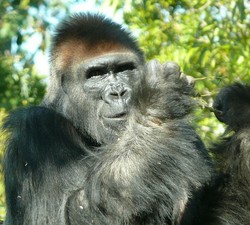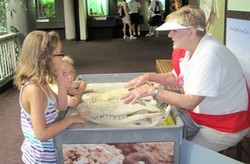There are many people out there that already do have them as pets. They say that they are treated well and are happy. No one can deny that it is rather unusual to have a pet primate rather than the more conventional pets such as dogs and cats.
However, they are not classed as pets and should only be kept with other primates in their natural habitat.
What do you think?

















 Understanding Depressionon 12/05/2024
Understanding Depressionon 12/05/2024
 The Mystery Predators of Britainon 12/05/2024
The Mystery Predators of Britainon 12/05/2024
 Support Your Local Pet Rescue Charityon 12/05/2024
Support Your Local Pet Rescue Charityon 12/05/2024
 Could Equine Assisted Therapy Benefit Those With Personality Disorderson 12/05/2024
Could Equine Assisted Therapy Benefit Those With Personality Disorderson 12/05/2024



Comments
Thank you!
My experience with stray sentients is that they live harmoniously with other sentients.
My Gusty (short for Augusta) -- before leaving outdoor for indoor life -- always left some food for other area sentients, such as an orphaned opossum and an orphaned rooster and other feline sentients.
So domesticated primates harmoniously with domesticated bird, cat and dog sentients seem a believable scenario.
(But should there be a hierarchy, who of domesticated primates versus domesticated traditionals would be the authority figure [the equivalent of top cat or top dog or top monkey ;-D])?
No, not as far as I know.
The summary statement asks "Many of the smaller species of primates are, what could be classed, as cute, but would it be fair to have them as pets?"
Is there any indication as to the impact of domesticating primate pets on the consequences for such traditional pets as bird, cat and dog sentients?
No matter how sweet and smart they are I believe, too, that they are not suitable to be kept as pets.
I think , they belong in their natural habitat and should not be kept as pets.
I don't think primates make good pets. I actually worked with squirrel monkeys doing research on them, and they were pretty smart! We kept them in big cages and they were taken to a different room for various learning tests - that kept them amused, especially when they escaped, otherwise they'd have been bored and probably developed unhealthy habits.